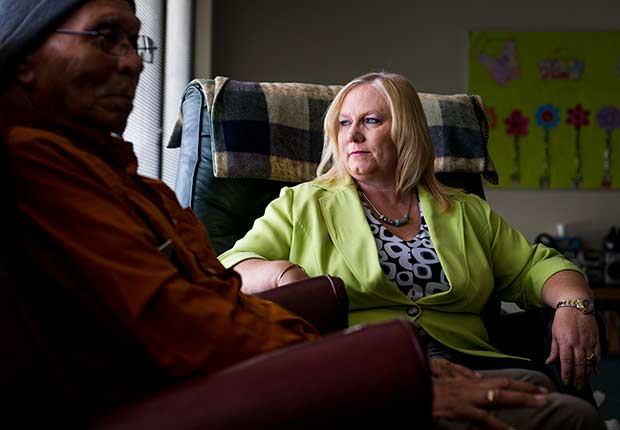AARP Eye Center

The State’s Legislature is looking for ways to get help to vulnerable adults who most need it and has forwarded a few bills to the 2024 Legislative Session to do just that. The Wyoming definition of a vulnerable adult is any person 18 years of age or older who is unable to manage and take care of themselves or their property without assistance as a result of advanced age or physical or mental disability. The Mental Health and Vulnerable Adult Task Force of the Wyoming Legislature, newly minted after the 2023 Legislative Session, could not sponsor its own bills but did have a busy interim, producing several proposed pieces of legislation.
Can 14 days be shorter than 72 hours? It just might, according to the Wyoming Department of Family Services (DFS). Currently, if DFS is alerted to a vulnerable adult, the agency has 72 hours to help set up a case and find emergency services within the community for the adult. However, DFS says that isn’t a lot of time and the majority of their current cases end up having a case worker go to a judge and request a 30-day extension of that order. During that time, emergency protective services are in-place such as home healthcare, someone to help with activities of daily living, and more.
The Judiciary Committee voted on Nov. 7 to sponsor a bill to change the law from 72 hours to up to 14 days before a case report is required to be fully set up, under which time vulnerable adults may remain in emergency protective services. The hope is that the change to 14 days from 72 hours means fewer requested extensions and services delivered to the adult quicker.
The second bill that will move forward as a Judiciary Committee bill this winter is a simple one - if DFS and its division of Adult Protective Services (APS) comes across a vulnerable adult it must report that vulnerable adult to local law enforcement and vice versa. The hope is for greater communication between social services and law enforcement.
Perhaps some of the Mental Health and Vulnerable Adult Task Force’s best work came in getting the Joint Labor, Health, and Social Services Committee to sponsor a bill that would make vulnerable adults a priority population to be served with state mental health dollars.
Should those who have been financially exploited be able to sue for financial damages, punitive damages, and reasonable attorneys fees? That question may be brought to the 2024 session as a bill called Vulnerable Adults - Civil Cause of Action is considered. The bill would allow the adult’s guardian, conservator, agent, spouse, parent, or descendant, caretaker, or those who might be beneficiaries of the adult to sue someone who has financially exploited the vulnerable adult.































































